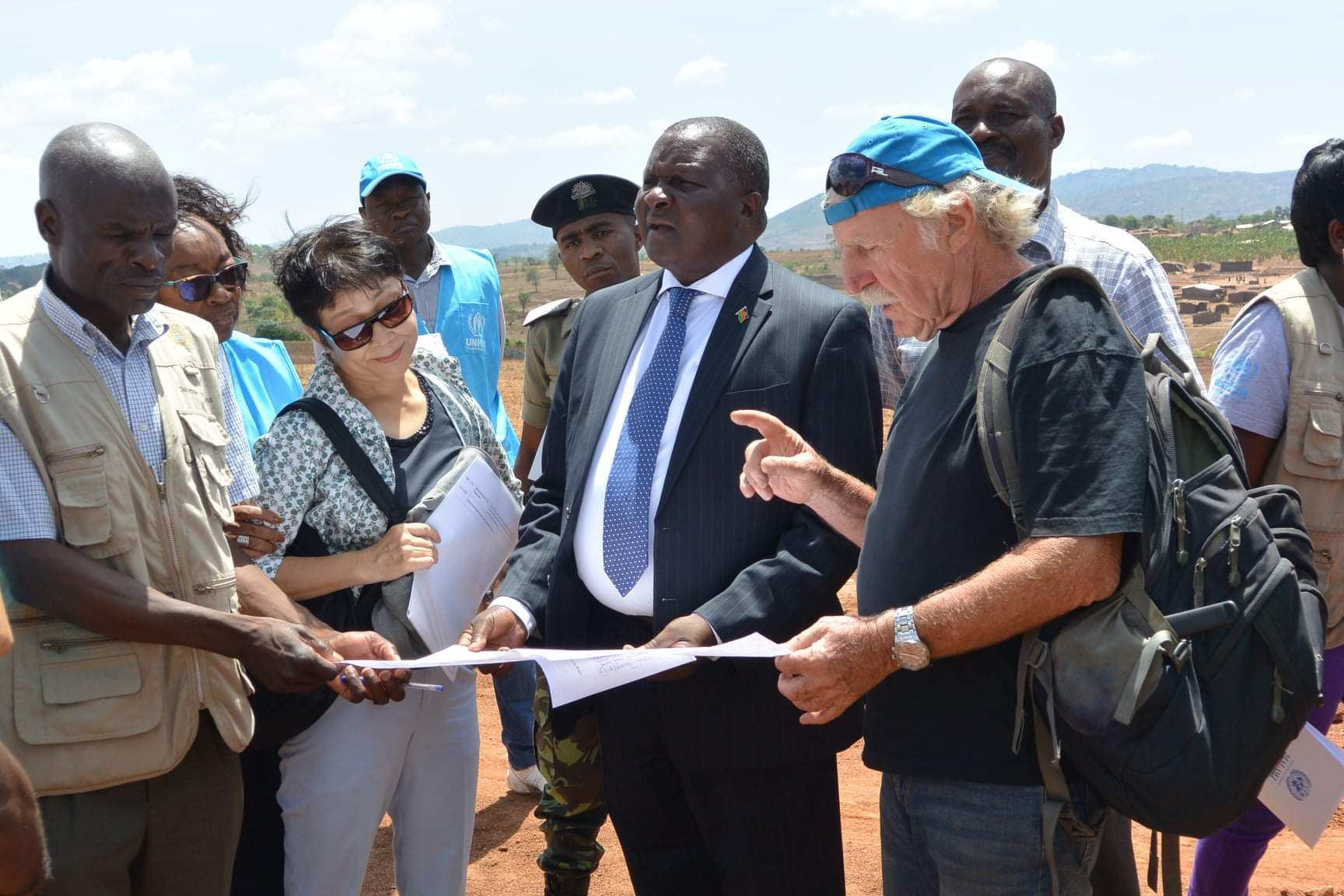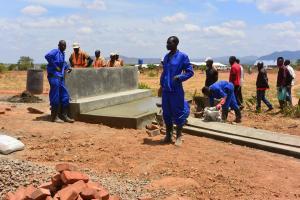
Government of Japan has provided funds and materials to Malawi for the construction of houses and other facilities at Katubza Zone which is an extension of Dzaleka Refugee Camp.

This has come after it was noted that there are a lot of refugees residing at the camp which has caused overcrowding.
Speaking during a visit to Katubza Project site, the Ambassador of Japan to Malawi Kae Yanagisawa, said the Government of Japan thought of providing the support to reduce the congestion problem at the camp so that the refugees can have better living conditions.
She said they have provided the funds and materials costing 410,000 US Dollars for the construction of houses, water facilities and sanitary facilities among others.
“Our government is committed to continue helping Malawi in taking care of refugees so that they can have better lives,” she explained.
In her remarks, United Nations High Commissioner for Refugees (UNHCR) representative, Monique Ekoko, said congestion risks such as potential fire hazards and public health risks among others are increasing which needs risk mitigation interventions.
She said Japan has offered an opportunity to initiate a first step towards Dzaleka’s decongestion and for implementation of a settlement layout concept that is guided by principles of Malawi Government physical standards for development of high density residential areas.
Ekoko said UNHCR is pleased with the support by the Government of Japan because Katubza area required financial support to demarcate plots, develop roadworks and sanitation facilities and create safe and conducive public spaces to avoid a replication of the challenges currently faced at the camp.
She said the site will become a demonstration of proper physical planning and human settlement connected to services and facilities to be shared with the host community.
She went on to say that the development of Katubza is not only to ease congestion at the camp but it will also create a model of sustainable and peaceful coexistence between refugees and Malawians.
Ekoko then asked for help so that refugees can be self-reliant and start to economically empower themselves since revelations indicate that 91.6% population at Dzaleka depend on community aid which she said is both insufficient and unsustainable.
On his part, minister of Homeland Security, Nicolas Dausi, appreciated the Government of Japan for helping government of Malawi in making sure that there is decongestion at Dzaleka refugee camp.
He said the plans of relocating refugees to Karonga, Katili camp are still on because that’s a better place for them unlike the current place.
He then asked refugees to stay at the camp and not wander around in the country without authorization, and he also asked them to go back to their countries once there is peace in their countries so that the camp can accommodate only people whose countries are at war.
Dzaleka refugee camp is currently hosting 43,000 refugees and asylum seekers yet it is a camp which was designed to accommodate a population of just 10,000.
It is sitting on 201 hectors of land out of which 108 hectors is densely occupied by residential shelters, with a smaller proportion occupied by public facilities and infrastructure.














